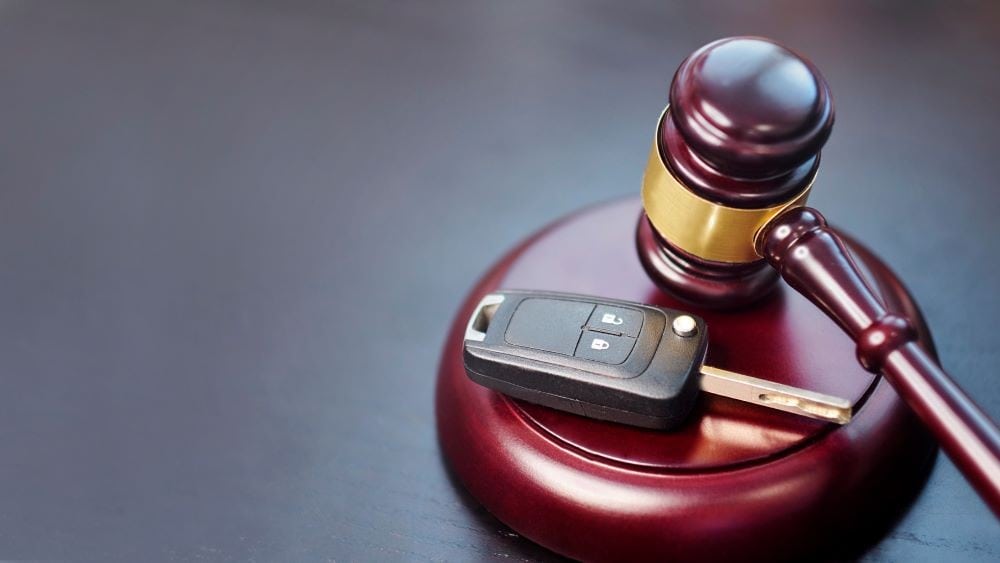
Have you ever found yourself in a situation where you felt mistreated or wronged by a government agency like the Department of Motor Vehicles (DMV)? Perhaps you’ve faced an unjust license suspension, suffered financial losses due to DMV errors, or experienced other damages as a result of the DMV’s actions. In such circumstances, you might wonder, “Can you sue the DMV?” This question is more common than you might think, and understanding your legal options is crucial.
In this comprehensive guide, we’ll explore the grounds for bringing a lawsuit against the DMV, the necessary steps involved, and the challenges you may encounter along the way.
Understanding the Role of the DMV
Before delving into the process of suing the DMV, it’s crucial to understand its role and responsibilities. The DMV, or Department of Motor Vehicles, is a state-level government agency tasked with various duties related to motor vehicles and drivers’ licensing.
Among its functions, the DMV oversees the issuance of driver’s licenses, vehicle registrations, and license plates. It also maintains driving records, administers driving tests, and enforces traffic laws. Essentially, the DMV plays a pivotal role in regulating motor vehicles and ensuring road safety.
Can I Sue My State’s Department of Motor Vehicles (DMV)?
Yes, you can sue your state’s Department of Motor Vehicles (DMV) under certain circumstances. These circumstances may include negligence, errors, unlawful actions, due process violations, discrimination, or sovereign immunity exceptions. It’s essential to consult with an experienced attorney to evaluate your case and determine if you have grounds for legal action against the DMV.
When Can You Sue Your State’s Department of Motor Vehicles (DMV)?
When interacting with your state’s Department of Motor Vehicles (DMV), encountering legal hurdles is not uncommon. Understanding your rights and legal options is crucial in such situations. Here are several scenarios where you might consider legal action against the DMV:
Denied a Driver’s License: If the DMV unjustly denies you a driver’s license, citing administrative errors or discrimination, legal action may be warranted to challenge the decision and assert your rights to obtain a license.
Misuse of Personal Information: When the DMV improperly discloses or misuses your personal data, leading to identity theft or other harms, legal recourse may be pursued to hold the agency accountable for breaching privacy rights.
License Suspension: In cases of unjustified license suspension by the DMV, such as for minor infractions or erroneous information, legal action can be taken to challenge the suspension and seek reinstatement of driving privileges with the appropriate evidence and representation.
Refusal To Renew a Driver’s License After License Revocation: If the DMV unreasonably denies license renewal despite meeting reinstatement requirements post-revocation, legal avenues exist to challenge the refusal and ensure adherence to procedural fairness.
Mistaken Identity and Revocation: When the DMV mistakenly identifies you for traffic offenses or other violations, resulting in license revocation, legal recourse is available to rectify the error with compelling evidence and legal advocacy.
Rejecting a Vanity License Plate: Should the DMV arbitrarily reject a vanity license plate application without valid grounds, individuals can pursue legal action to safeguard freedom of speech and challenge unjust censorship by the agency.
Resolving Disputes with State Agencies: In instances where disputes with the DMV remain unresolved through administrative channels, legal action may be pursued to challenge decisions and seek equitable resolutions within the judicial system.
How to Sue the DMV: The Legal Process Explained
If you believe you have grounds for suing the DMV, it’s essential to understand the legal process involved. While the specific procedures may vary depending on your jurisdiction, the following steps generally apply:
Consult with an Attorney: Before taking any legal action against the DMV, it’s advisable to consult with an experienced attorney who specializes in administrative or traffic law and government litigation. An attorney can assess the merits of your case, explain your legal options, and guide you through the process.
Gather Evidence: To support your case against the DMV, you’ll need to gather evidence demonstrating the agency’s negligence or wrongdoing. This may include documentation of DMV errors, correspondence with the agency, witness statements, and any other relevant evidence.
File a Complaint: Your attorney will help you draft and file a complaint against the DMV in the appropriate court or administrative tribunal. The complaint outlines the legal basis for your lawsuit and the relief you’re seeking, such as compensation for damages.
Serve the DMV: Once the complaint is filed, it must be served on the DMV, notifying the agency of the lawsuit against it. The DMV will have an opportunity to respond to the complaint and defend itself against the allegations raised.
Discovery: During the discovery phase, both parties exchange information and evidence relevant to the case. This may involve depositions, interrogatories, and requests for production of documents.
Pretrial Proceedings: Before the case goes to trial, there may be pretrial proceedings, such as motions to dismiss or motions for summary judgment, where the court system determines if there are grounds to proceed with the lawsuit.
Trial: If the case proceeds to trial, both parties present their arguments and evidence before a judge or jury. The judge or jury then decides the outcome of the case based on the evidence presented and applicable law.
Appeal: If either party is dissatisfied with the outcome of the trial, they may have the right to appeal the decision to a higher court. The appellate court reviews the trial court’s decision for legal errors and may uphold, overturn, or remand the decision.
Challenges You May Face When Suing the DMV
While it is possible to sue the DMV under certain circumstances, pursuing legal action against a government agency like the DMV can be challenging. Some of the potential challenges you may face include:
Sovereign Immunity: As mentioned earlier, government agencies are generally protected by sovereign immunity, which can make it difficult to sue them. You may need to overcome this legal hurdle by establishing exceptions to sovereign immunity, such as showing that the DMV acted negligently or unlawfully.
Complex Legal Procedures: Suing a government agency involves navigating complex legal procedures and administrative processes. You may need to follow specific guidelines and deadlines for filing a lawsuit against the DMV, which can be daunting without legal assistance.
Burden of Proof: In any lawsuit, the burden of proof lies with the plaintiff, meaning you must provide evidence to support your claims against the DMV. This may require gathering documentation, witness testimony, and other evidence to substantiate your case.
Government Resources: Government agencies like the DMV often have access to significant resources, including experienced attorneys and legal counsel. Challenging the DMV in court may require you to level the playing field by seeking legal representation of your own.
Limited Remedies: Even if you successfully sue the DMV, the remedies available to you may be limited. For example, while you may be able to obtain compensation for damages suffered, you may not be able to compel the DMV to change its policies or practices.
Seeking Compensation for DMV Negligence
If you’ve suffered damages as a result of DMV negligence or wrongdoing, you may be entitled to compensation for various losses, including:
Financial Losses: This may include expenses incurred as a result of DMV errors or delays, such as lost wages due to license suspension or costs associated with correcting inaccurate information on your driving record.
Emotional Distress: If the DMV’s actions have caused you emotional distress, such as anxiety or depression, you may be able to seek compensation for these non-economic damages.
Other Damages: Depending on the circumstances of your case, you may also be entitled to compensation for other damages, such as pain and suffering or punitive damages to punish the DMV for its wrongful conduct.
Why You Need an Attorney When Suing the DMV
When considering legal action against the DMV, seeking the expertise of an attorney is crucial. Attorneys specializing in administrative law possess the necessary knowledge to steer the complexities of suing government agencies. Let’s delve into why having an attorney by your side is essential when suing the DMV.
Legal Insights: Attorneys specializing in administrative law understand the nuances of suing government agencies like the DMV, offering informed guidance and representation based on their knowledge of relevant laws and precedents.
Assessment of Merits: Attorneys evaluate the strength of your case, advising on whether you have grounds for suing the DMV by analyzing evidence and explaining your legal rights and options clearly.
Building a Strong Case: Attorneys adeptly gather evidence, prepare persuasive legal arguments, and present your case effectively in court to support your claims against the DMV.
Negotiating Settlements: Attorneys negotiate with the DMV to seek favorable outcomes, such as compensation for damages or changes to policies, resolving disputes outside of court when possible.
Representation in Court: Attorneys represent your interests in court, advocating for your case, cross-examining witnesses, and presenting arguments before a judge or jury for the best possible outcome.
Mitigating Risks: Attorneys assess and mitigate risks associated with suing the DMV, developing sound legal strategies and advising on the best course of action to achieve objectives.
Appeals Process: Attorneys handle the appellate process, arguing legal errors and seeking to overturn or modify the trial court’s decision if necessary, ensuring your rights are protected throughout.
Maximizing Compensation: If you’ve suffered damages as a result of DMV negligence or wrongdoing, an attorney can help you pursue maximum compensation for your losses.

Seeking Justice Against the DMV? BLG is Here to Help!
While suing the DMV is not a straightforward process, it is possible under certain circumstances. If you believe you’ve been wronged by the DMV and have suffered damages as a result, it’s essential to consult with an experienced attorney who can assess your case and provide legal advice on your legal options. By understanding the grounds for bringing a lawsuit against the DMV, the challenges you may face, and the legal process involved, you can better navigate the complexities of seeking justice and compensation for DMV negligence or wrongdoing.
If you’re facing issues with the DMV and wondering whether you can take legal action, BLG has the answers you need. Our experienced attorneys specialize in navigating the complexities of DMV-related cases, providing you with expert guidance and representation every step of the way.
Contact BLG today to schedule a free consultation.




